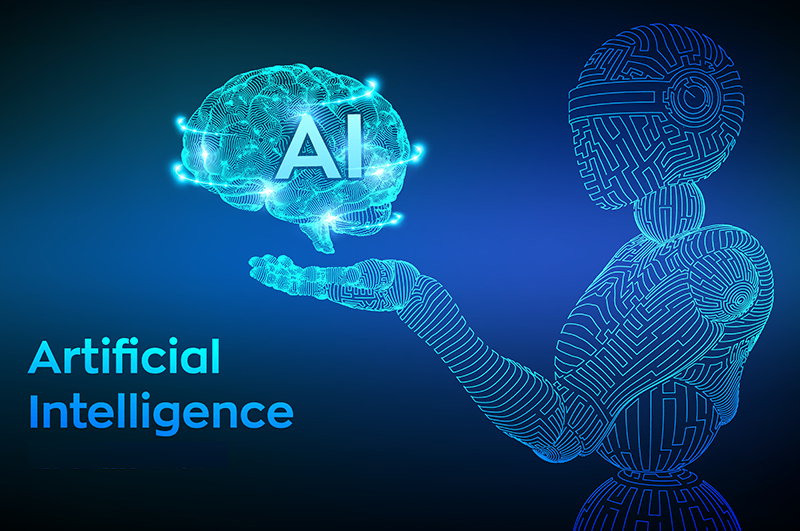With Artificial Intelligence technology gradually becoming a part of our lives, it is going to be the future of data entry. We are heading towards an age of automation, and AI technology will have a huge impact on the way data entry works, as it improves efficiency and reduces the time spent managing data. Traditional data entry methods are being replaced by automated processes, which reduces the possibility of errors while also increasing speed and consistency. Automated data entry, which may be adjusted to individual industry demands and goals, also helps to broaden network availability by more effectively managing remote data, and helps organizations achieve improved responsiveness by allowing them to enter data in real time. To automate and convert any data into digital format, you can approach a data entry service.
Importance of Data in Artificial Intelligence
Although AI relies on machine learning (ML) abilities, we must understand that ML does not occur in a vacuum. Big data drives machine learning, which would not be possible without it. As a result, AI is dependent on the amount of data we can collect and the methods we employ to analyze and manage it. If we want to realize the promise of AI in the future, we need to pay greater focus to data acquisition, transit, processing, and storage.
Data Capture Is the Key
Be it software-based AI applications, smart robotics based on AI, or machine learning, data collection is critical. When AI products were first being developed, developers spent a significant amount of time and money collecting human behavioral data from both the industry and from the general public. Many smart applications in healthcare provide predictive analysis for prognoses and remedies. While these systems are growing increasingly intelligent, they may be made even more precise by incorporating additional intelligence derived from human input. Whether it is software systems, hardware devices, IoT devices, or home automation equipment, user data is crucial for building technologies with higher intelligence. However, one of the most challenging elements of acquiring data in edge locations is securely delivering it to a data center/cloud due to security concerns.
Challenges of Handling Data
High-performance systems are essential to optimize AI Soutions for the future. These could be storage or cloud-based systems, with modern, data-hungry applications processing them. Whether they are micro strategy tools or business intelligence tools, the more data you feed them, the faster their algorithms can run and deliver insights, and this is known as data mining. The same process was done earlier by storing the data in a warehouse and then processing it using apps.
Data-generating devices are now pouring out ever-increasing volumes of data on a constant basis. The data may be from autonomous vehicles or healthcare, and the platform could be a drone or an edge device, everything is capable of producing more data than ever. Till now, the data management industry has been unable to capture these volumes using networks, 5G, the cloud, or any other storage option. These conditions have resulted in discarding 90 percent of data due to the inability to process data and deliver it to a data center. The more data we have, the more effective AI becomes. The more data we can collect in real time from real people on the ground, the smarter our AI devices will become. The more we can apply AI to specific use cases, the more personal the connection will become, and the better we will be able to handle users’ concerns.
Much of the big data we generate today goes unused, owing to enterprises’ inability to capture, transfer, and analyze it quickly enough to generate real-time insights. It is important to find a solution to overcome these obstacles so that we can reap the benefits of putting AI to work for humanity.
How the Future of Data Entry Will Look Like With AI
- Increased analysis speed: Earlier, information processing and analysis were done manually. But with AI these activities are done instantaneously, allowing firms to solve problems faster and allowing data management professionals to focus on other vital responsibilities.
- Real-time, streaming analytics: As AI becomes more integrated into the industry, businesses can run real-time streaming analytics to get the latest, accurate and timely information.
- Application development will be surpassed by DevOps workflows: As AI and machine-learning tools learn and evolve, their suggestions and recommendations will become more refined, leading to an increase in the use of AI-based DevOps workflows for application development, allowing engineers to continuously integrate and deliver software updates that leverage AI knowledge and learning.
- All industries will be transformed by AI: Industries will shift dramatically as AI advances and enterprises build workflows that enable them to maximize value. With AI-powered remote patient monitoring technologies and other advances, healthcare companies will be able to provide more efficient, cost-effective treatment.
Artificial Intelligence (AI) is a transformative technology that will change the way we live, work and play. AI-powered data entry is a subset of AI technology that impacts how businesses capture and process structured data. Businesses across all industries are looking at how they can leverage AI to transform their operations and become more competitive in their respective markets. So, the first step towards transforming to AI is to convert all your paper-based data into digital format with the help of professional data entry company.




